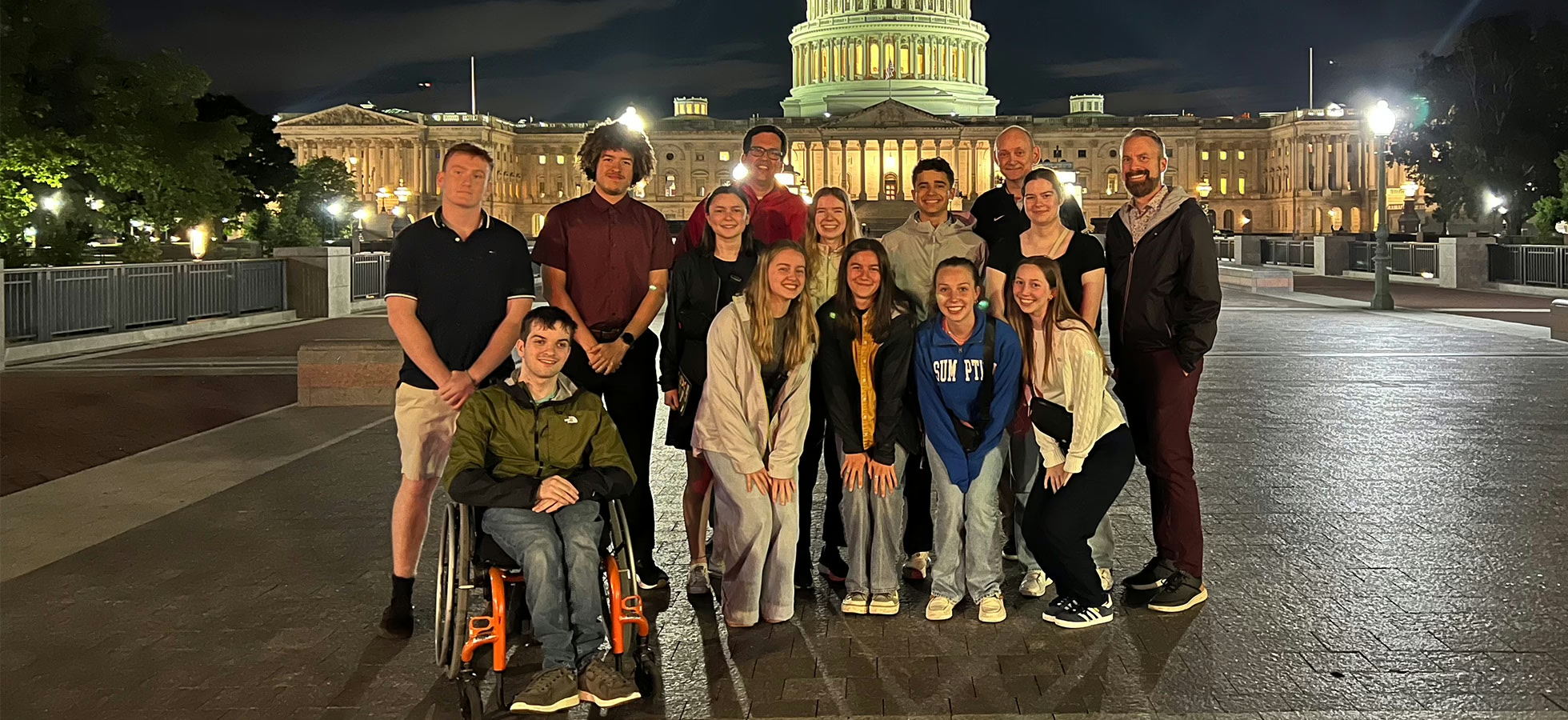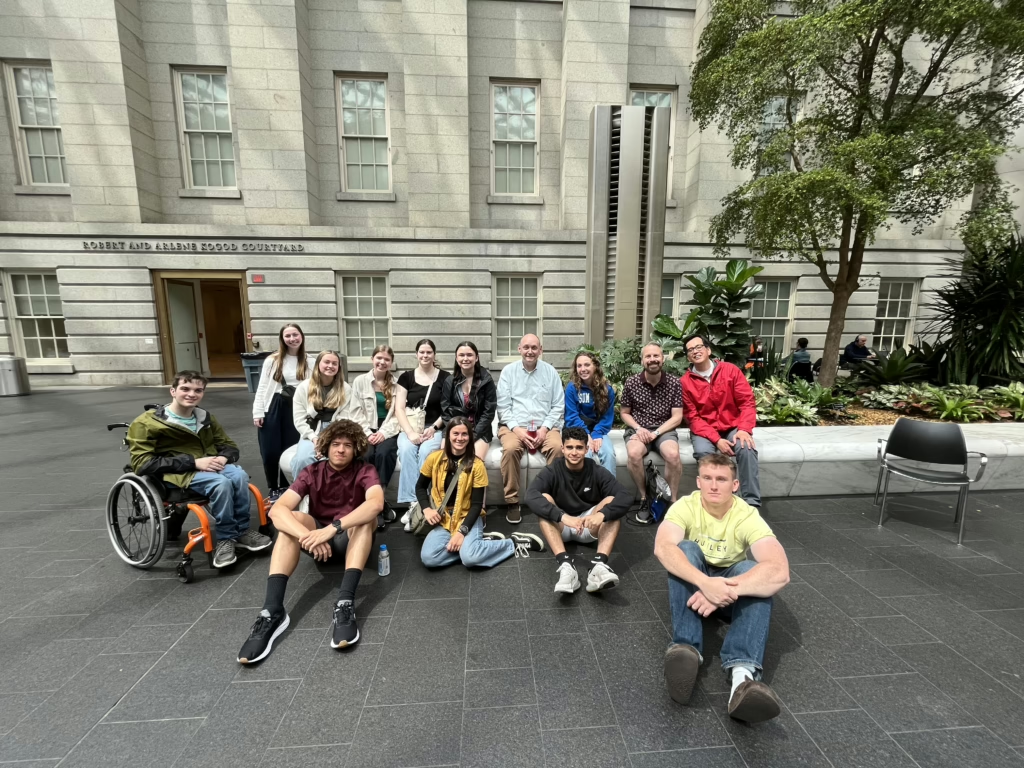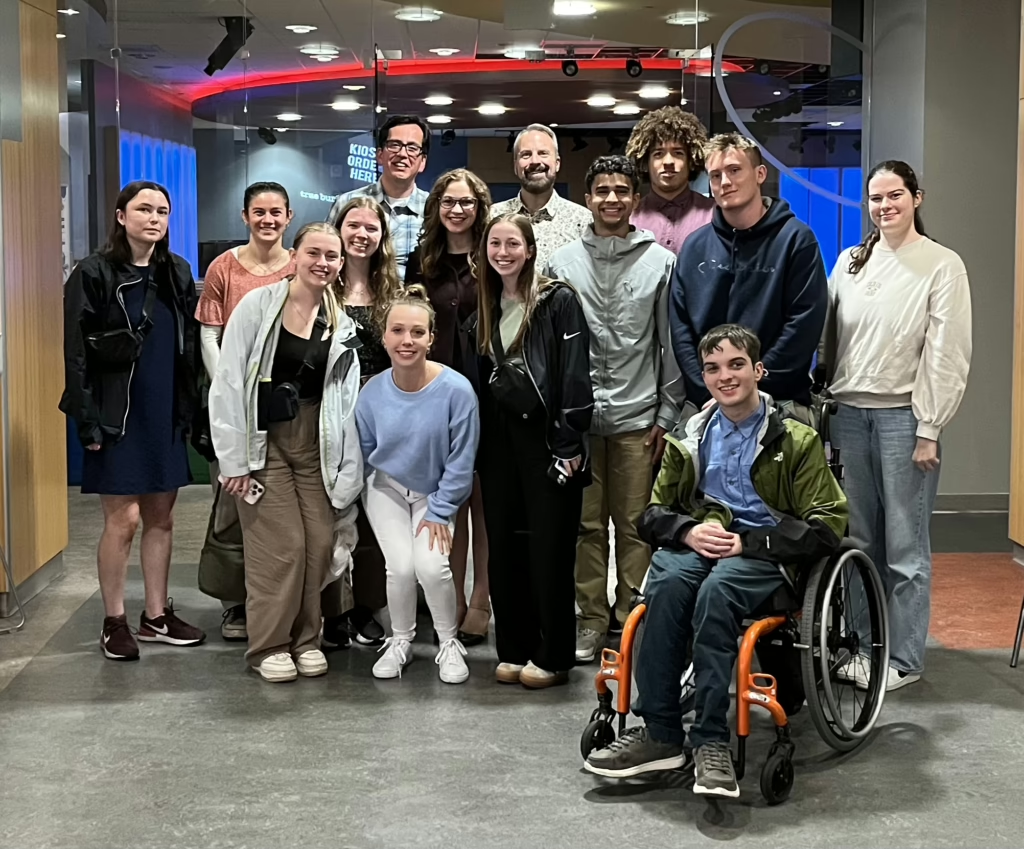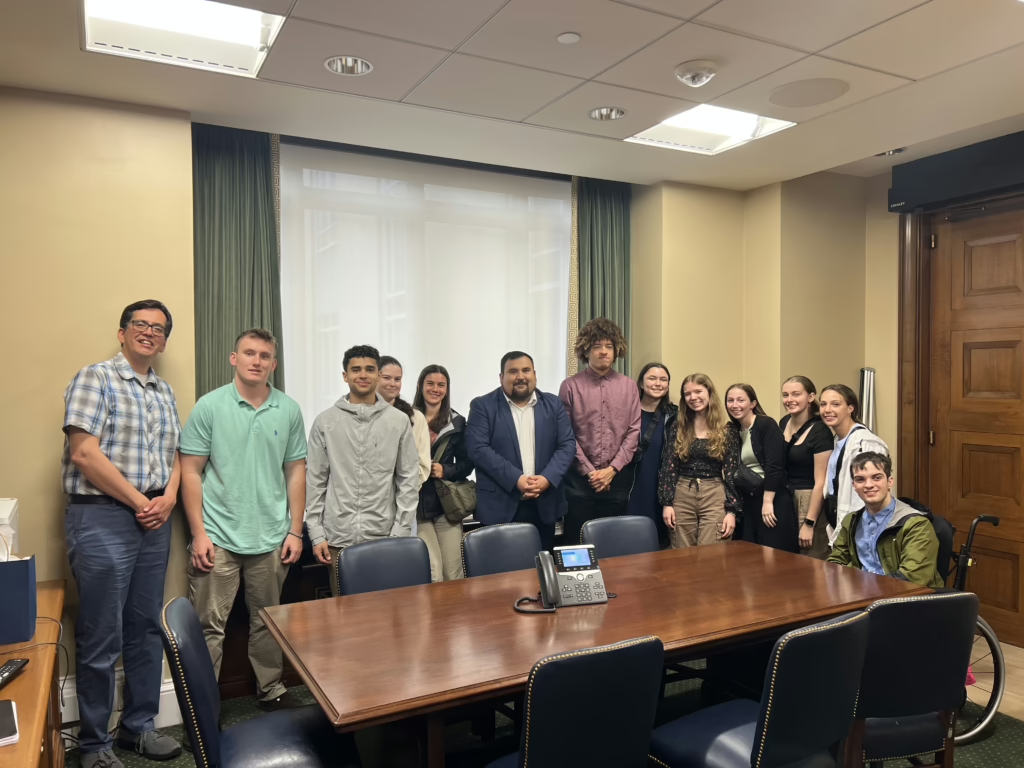SOPHIA Program Brings History and Vocation to Life in Washington, D.C.

This year, the Sophomore Initiative at Assumption (SOPHIA) program offered students the opportunity to experience our nation’s capital alongside a historian, professor of history Carl Keyes; a political scientist, President Greg Weiner; and the director of the SOPHIA program, Esteban Loustaunau, professor of Spanish.
“It was especially meaningful to be in a hub of so much history. Everyone did an amazing job organizing the trip so that the sites and museums gave a robust view of history through multiple lenses,” said Kyla Hughes ’27, a human services major with a concentration in communication sciences and disorders.
Katie Adams ’27, a biotechnology and molecular biology major, cited having the University president on the trip, who spent several years in the capital as a congressional spokesperson and political consultant, as a unique part of the experience. “President Weiner would lead our nightly discussions. He was interested in hearing what we were noticing in D.C., but also our thoughts about the SOPHIA program, and our broader Assumption experiences. We spent time thinking about how we could bring things back to campus for the benefit of all students.”
The SOPHIA program was established 11 years ago as a way to engage sophomore students in meaningful discussions about life’s meaning and how they can connect their passions to their vocations in a co-curricular academic setting. Historically, through the program, 24 sophomore students take part in a common course, small mentoring groups with faculty, a fall retreat, and a spring capstone trip.
The SOPHIA common course grounded in the program’s focus on vocational reflection and the pursuit of a life of meaning and purpose. Previously a comparative literature course taught in the fall semester, this year Keyes taught a “new” common course in the spring semester, a revised version of his Revolutionary America class that continues the usual emphasis on citizenship yet with a new focus on the founding generation’s sense of vocation that directly connected to the culminating experience in D.C.

The group at the National Portrait Gallery.
“I wanted the class to have a strong emphasis on thoughtful citizenship as an important aspect of purpose,” said Keyes. “Thinking about this made me revisit more modern, contemporary debates about American history — how we tell the story of the American past and how that story should be taught in universities and school systems.”
The D.C. trip included a visit to the National Portrait Gallery, where students were surrounded by portraits that, together, comprise the tapestry of American history. Students each selected a figure from history photographed in the gallery whose vocation reflected their own to present to one another. Keyes noted that the choices reflected the fact that the common course material had an impact on the students, as on the first day they had written down notable revolutionary figures, consisting mostly of white, male figures.
“When we had students report back later on the people they admired after they explored the National Portrait Gallery on their own, it better reflected what American society looks like now and during the periods that these people were from — diverse in terms of men and women, race and ethnicity,” said Keyes. “What we talked about in class had an influence, because the students collectively told a much more complete story of America than on the first day of class.”
Students also had the opportunity to visit the office of Congressman Jim McGovern and to see him in action on the floor via C-SPAN debating a bill.
“Visiting Washington, D.C. was a new experience for most of the students, and they found the level to which visitors, tourists, and citizens have access to the government, the seat of power, all of these famous things really engaging,” said Keyes. “We spent some time in the gallery of the House Chambers, we saw legislators delivering speeches to the floor…it struck them to see things from class that were familiar, and part of our collective memory, that they knew about but had not experienced directly.”
Due to the action on the floor, students were not able to meet with Congressman McGovern but still had the opportunity to connect with his staff and see his office.
“Congressman McGovern’s staff gave us a tour of the Capitol, and some of them were still in college, which gave students the opportunity to ask great questions about how they got to the positions they were in,” said Loustaunau. “One of the ideas that we had organizing the trip was to make sure students understand that Assumption’s Catholic liberal arts education offers knowledge and skills that prepare you for so many careers and opportunities. Asking those questions and meeting with the staff showed some of those possibilities.”
An addition to this trip that was not possible on previous SOPHIA Rome trips was the inclusion of Assumption alumni. Students were able to meet and speak with Jose Garcia ’19, an education policy advisor in the United States Senate Committee on Health, Education, Labor, and Pensions, whose ranking member is Bernie Sanders, and Gabriella Humphries ’21, a paralegal for the Department of Justice.


The group with Gabriella Humphries (left) and Jose Garcia (right).
“With every person that we met, we were able to ask about their purpose, what drives them, and what advice they had for us,” said Adams. “The trip really pushed me to think more deeply about what’s in front of me in day-to-day life. I learned that you should take every opportunity, try different things, take different courses that you wouldn’t normally take, talk to different people.”
The trip left students with a sense of discovery, with both Hughes and Adams noting that they will be more apt to try new things and reflect upon what they are seeing and understanding in the world.
“Being open and excited to try new things is so powerful, and ongoing reflection and discovery of yourself and what it means to be a thoughtful citizen is so important,” said Hughes. “My favorite part of the trip was how well all of us students and faculty connected right away. It was clear to me we all joined the program with an open mind and the common goal of getting to know ourselves better and to learn about our connection to the world around us, and it really showed in our conversations.”
